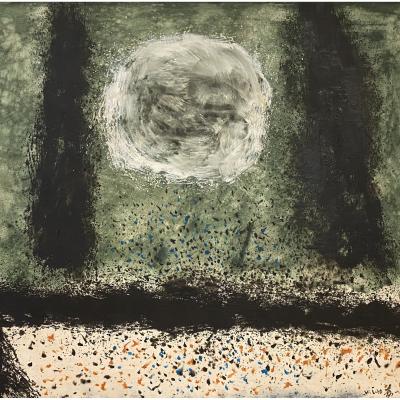Emerging in New York in the 1940s and 50s, Abstract expressionism was as a style of painting that emphasized spontaneous and gestural brushstrokes and embraced the physical act of painting itself. The impact of this movement’s radical departure from traditional representational art had a profound impact on non-European painters, especially those from Latin America and Asia, many of which were seeking to break away from the European artistic traditions that had dominated their countries for centuries and were looking for new forms of expression.
Combining elements of culturally traditional painting with the gestural brushstrokes and bold color palette of abstract expressionism, this group of artists sought to create a unique fusion of Eastern and Western styles. Featuring bold, abstract forms, they embraced the spontaneity and energy of the Abstraction Expressionist movement, fused with traditional motifs, creating new and innovative styles that reflected their own cultural heritage. Through their work, they helped to bridge the gap between Eastern and Western art and paved the way for the development of modern and contemporary art in Asia.
